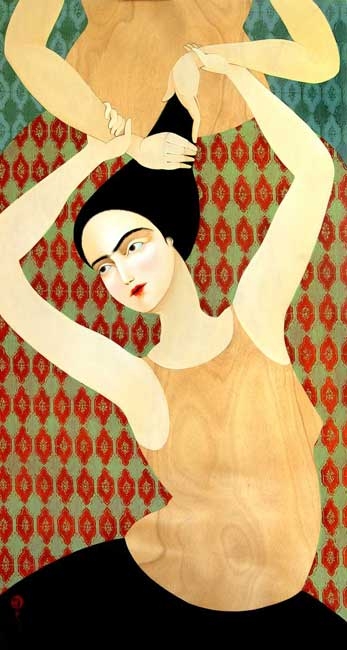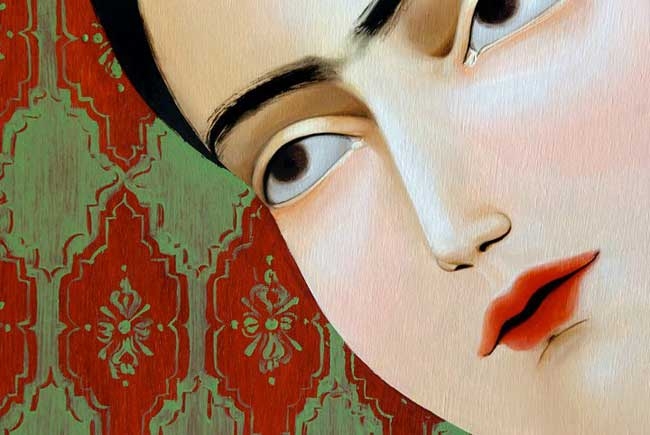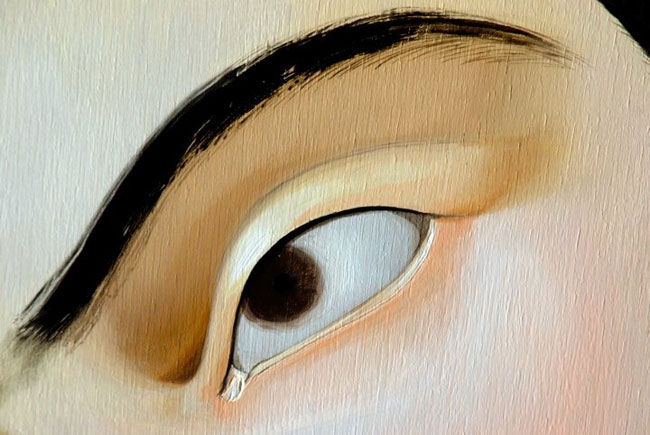At the heart of Hayv Kahraman’s work lies the question of femininity as it is lived in the Middle East. From personal experience heavily influenced by the dominant oppression which characterises the plight of women in particular in the context of the Iraq war and which was to brand the artist’s childhood, her work invites us to encounter an intimate yet familiar universe which testifies to a state of submission that still exists today.
In apparently banal scenes of domestic life, Hayv Kahraman’s female characters appear as gracious and elegant figures. The melancholy expression in their large eyes and the fragile and elongated poise of their heads brings to mind the archetypal swan. From an intentionally limited palette, the artist employs an oil-painting technique which involves laying down flat blocks of colour. By allowing the materiality of the support to appear as an integral part of the piece, the wood shapes the delicate presence of these characters which seem to melt into the polished surface. The repetition of an ornamental motif applied according to a subtle play of opposing colours between the clothing of the model and the background it is set against brings to mind a tapestry and reinforces the two dimensional appearance of subjects trapped by a flat surface. For Hayv Kahraman, this representation in two dimensions signifies the duality between joy and agony, dream and nightmare. A duality which is expressed by the characters’ gestures in Culmination through the strain of the forced body and the tension in the hair that is being pulled to keep it under control…
On the subject of obedience and subordination, the artist questions the plight of the Eastern woman and declares "When oppression continues for generations, questioning of it all fades away. My focus is not on women who choose the domestic path willingly, but those who are forced into and then submit to this enslavement".
Vérane Pina
Translated by Theodora Taylor





Follow us on: